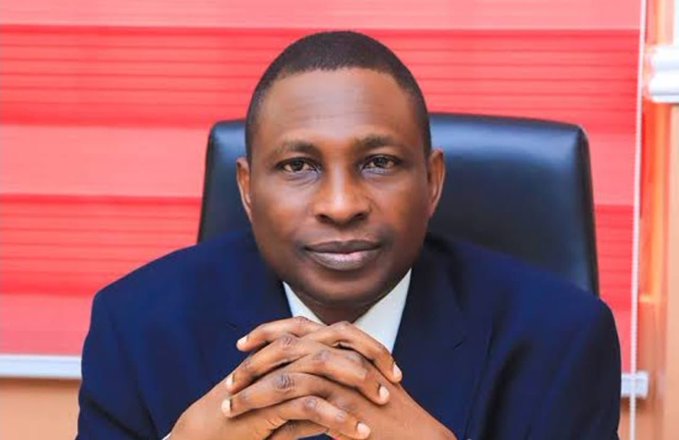Abuja, July 9, 2025 — The Executive Chairman of the Economic and Financial Crimes Commission (EFCC), Mr. Ola Olukoyede, has called for enhanced cyber resilience across Nigeria’s financial ecosystem as a proactive step to tackle the rising tide of internet-related crimes threatening the nation’s economy.
Speaking at a high-level stakeholders’ engagement on financial crime prevention in Abuja on Tuesday, Olukoyede emphasised that the evolution of digital banking and financial technologies, while beneficial, has also created new vulnerabilities that cybercriminals are increasingly exploiting.
He noted that Nigeria’s financial system remains a prime target for internet fraudsters, and unless critical infrastructure, data management, and institutional safeguards are fortified, the country risks deeper economic setbacks.
“We are in an era where cybercrime has evolved from simple email scams to highly sophisticated financial fraud schemes involving artificial intelligence, digital identity theft, crypto laundering, and coordinated attacks on financial platforms,” Olukoyede said. “To counter this, we must build cyber resilience—not just reactive responses.”
According to him, the EFCC is working in collaboration with relevant institutions such as the Central Bank of Nigeria (CBN), the Nigerian Communications Commission (NCC), and private fintech operators to develop a joint cybersecurity strategy tailored to Nigeria’s unique financial landscape.
Olukoyede also disclosed the Commission’s ongoing investment in advanced forensic technology and the establishment of specialised cybercrime units within its directorates. These units are tasked with monitoring financial crimes online in real time and ensuring the safe recovery of stolen digital assets.
He urged banks, telecom operators, and fintech firms to prioritise end-to-end encryption, customer awareness, and internal audits to reduce loopholes often exploited by fraudsters. He also called for legislation that strengthens deterrence, including stiffer penalties for cybercriminals and their collaborators.
“The future of finance in Nigeria is digital,” he said, “but we must ensure that trust, security, and accountability are foundational pillars of that future.”
As digital financial services continue to expand rapidly across Nigeria, the EFCC chairman reaffirmed the Commission’s commitment to a preventive, intelligence-driven approach in protecting the financial space from cyber threats.

